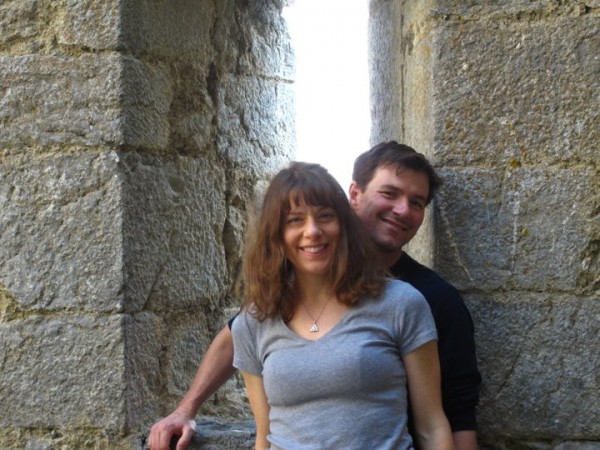I have a theory how my fear of enclosed spaces began. I'm saving the big reveal for my memoir, but suffice to say, it's been with me since childhood. Claustrophobia flared only intermittently until May 15, 1999. Prior to this day, there had been some bad moments in high school, after which I tried cognitive behavioral therapy until I could enter an elevator again without turning into a puddle of scream.
After the incident in 1999, which involved a small plane stranded on melting tarmac in broiling-hot Champaign, IL, I canceled work trips to Europe and Australia. Within a few months, I got a handle on myself. My GP approved a flight-specific Ativan prescription. My next job involved domestic flights every two weeks and regular international travel and I got to the point where I stopped the drugs except for international flights.
There have been many bad moments—cold sweats, bowels like molten lava, racing heart, certain at any moment I'll panic myself into a heart attack or my mind will shatter with madness. There was the awful time in Charles de Gaulle when I realized I'd packed the Ativan in my checked luggage. My first triathlon where the open water swim nearly sank my will. But I got through it all. Each and every miserable episode of icanticanticanticant.
Each flight is a compromise between my intense distrust of psychopharmaceuticals as a treatment for anxiety and fear of a full-blown panic attack. And I don't do elevators. I don't book a room at a hotel until I know the room can be accessed via a stairwell. I walked up and down fourteen flights after a surgical procedure. I'm serious. I don't do elevators.
~
Last year I experienced a series of panic attacks, some of which I chronicled here: Emptying Tomorrow. I've worked through this shaky period and I'm making peace with the underlying causes of my anxiety. Fear of my mind's evil machinations flutters just underneath my brain-skin, but I find fighting back is a good use of excess anger. My doctor agreed I had the power to overcome my own emotional betrayal. She suggested I add meditation to my healing toolbox.
But that goddamned claustrophobia. It clings to me, and I to it, like a bad marriage.
~
We cancelled a trip to Europe last fall because our unexpected spring move brought a change in finances. Dirty little secret: I was overcome with relief because I knew I couldn't get on the plane. I hadn't flown since the panic attacks started and the thought of compounding the whole stupid thing with a transoceanic flight was more than I could bear. We planned another trip for this spring, but I simply couldn't get my finger to click "Confirm Purchase" on the Iceland Air website.
My brain said it was the money. My heart knew it would simply stop beating once I started down the jetway.
icanticanticanticant
~
A couple of months ago, my thankless first reader—my husband—said one of the things he appreciates most about my writing is my sense of place. You always know where you are in my stories, because setting is vital to me. It sets the mood and provides context, color, sound, scent, texture, and the backdrop to emotion and action. I want the reader to be immersed in my worlds and feel as much a part of them as my characters.
What Brendan said illuminated a dark corner of my mind. The moments of the most profound well-being I have ever experienced have come about while I'm out and about, experiencing. Nearly everything I've written is set in a place where I've travelled or lived long enough to be inspired, but not so long, it became routine. Not just the act of travel, but fully engaging in a unfamiliar community, fuels my imagination. To deny myself the opportunity to travel is to deny myself as a writer.
And I was hesitating, why? Because some broken piece of me is afraid that I can't cope with a transoceanic flight? A flight I've coped with countless times before? Seriously? SERIOUSLY???
~
A few weeks ago, I tuned in and turned on to the meditation programs I'd downloaded several months ago and then ignored. A soothing voice drips like honey into my psyche, helping me envision the plane as a place of comfort (snort) and safety and reminds me how blessed I am to make a journey most only dream of making. The Voice helps me create a place where I can lock away my anxieties. I enter a state of such deep relaxation, I fall asleep before I can finish even a single module. I'm still wondering what happens at the end of the flight anxiety-specific segment. I'm assuming I make it to my destination.
~
People. We're headed to France in October. Tickets purchased. A barn-now-cottage outside a village in deep in the Dordogne rented. Paris hotel reserved. And yes, the hotel has stairs to all floors. I asked before I booked.
icanicanicanican

